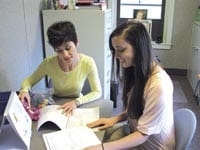What Parents Can Do About Teenage Substance Abuse
Substance abuse by teens is common. A national survey shows that, by high-school graduation, 80{06cf2b9696b159f874511d23dbc893eb1ac83014175ed30550cfff22781411e5} of students will have tried alcohol, more than 40{06cf2b9696b159f874511d23dbc893eb1ac83014175ed30550cfff22781411e5} will have used marijuana, and 9{06cf2b9696b159f874511d23dbc893eb1ac83014175ed30550cfff22781411e5} will have taken prescription pain medication for nonmedical reasons. More kids now smoke marijuana, in fact, than tobacco.
The widespread use of these substances makes it difficult to address, and it’s hard to know how serious the problem is without an evaluation. Even kids with addictions may minimize their use, believing that alcohol and drugs are ’just part of growing up.’ While most kids try alcohol and many try marijuana, substance-abuse disorders — the ongoing use or use associated with problems — are rare and suggest more than just experimentation.
Another problem is secrecy. Kids don’t want parents to know about their drug use, and most of the time they don’t. By the time a parent thinks there might be a problem, chances are there’s a big problem.
So what can parents do? Here’s what I recommend.
- Talk openly and discourage your child from using substances. All substance use is dangerous for kids. When kids drink, they tend to binge, and because they’re less susceptible to the sedative effects of alcohol than adults, they’re more likely to engage in dangerous activity with impaired judgment. Marijuana use can result in mood disorders, and new research has found that adolescents who smoke marijuana heavily lose IQ points as they age. Using any substance early also puts teens at increased risk of addiction — a chronic, relapsing neurological problem.
- Recognize that teen substance abuse is a big problem, and no one is immune. It can reach children from all social and economic classes, races, and religions, both girls and boys. Age offers no safety net, either; I have treated children as young as 11 in my clinic, and the National Institute of Alcohol Abuse and Alcoholism recommends screening children starting at age 9.
- Be aware that the substances kids abuse often come from their own homes — from liquor cabinets or home medicine cabinets — and take steps to prevent easy access.
- Take advantages of opportunities to talk. A news article about a crash caused by a young person driving under the influence of drugs or alcohol, resulting in death or serious injury, can lead to useful conversation about the tragic consequences of drinking or drug use and driving. Alcohol and beer commercials, movies, and television programs offer other opportunities.
- Look for changes in behavior. Mood swings, irritability, withdrawal from social situations, declining school performance, a change in friends, or loss of interest in things they once liked are indications something is wrong, and often substance abuse reveals itself through these signs. Parents who notice such changes should consider bringing their child to be evaluated.
Should your child need help, a good place to begin is with your primary-care physician, who can play an important role in identifying and intervening in substance abuse by adolescents. Bring your concerns to the doctor, describe them in detail, and relate what you’ve noticed. Then let the child talk to the doctor alone. Physicians are trained more and more today on how to assess a child and figure out what might be happening. If necessary, a referral can be made to a mental-health counselor or specialist in substance-abuse treatment.
Treatment programs are available for many substance-abuse problems and disorders. For parents worried about the cost of treatment, my advice is simple: you can’t afford not to. Untreated, the problem likely will get worse, resulting in harm to the child, a lost future, even death. For those feeling financially strapped, I urge calling all available resources — insurers, clinics, your physician — for advice on available services.
Above all, parents should remember the good things about their child, even as he or she copes with substance abuse and treatment. They should try to rebuild the relationship while working on changing the behavior. –
Dr. Sharon Levy specializes in development and behavioral pediatrics and is director of the Adolescent Substance Abuse Program at Boston Children’s Hospital. This article is a service of the Mass. Medical Society.

